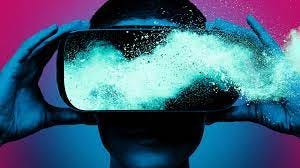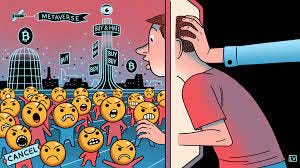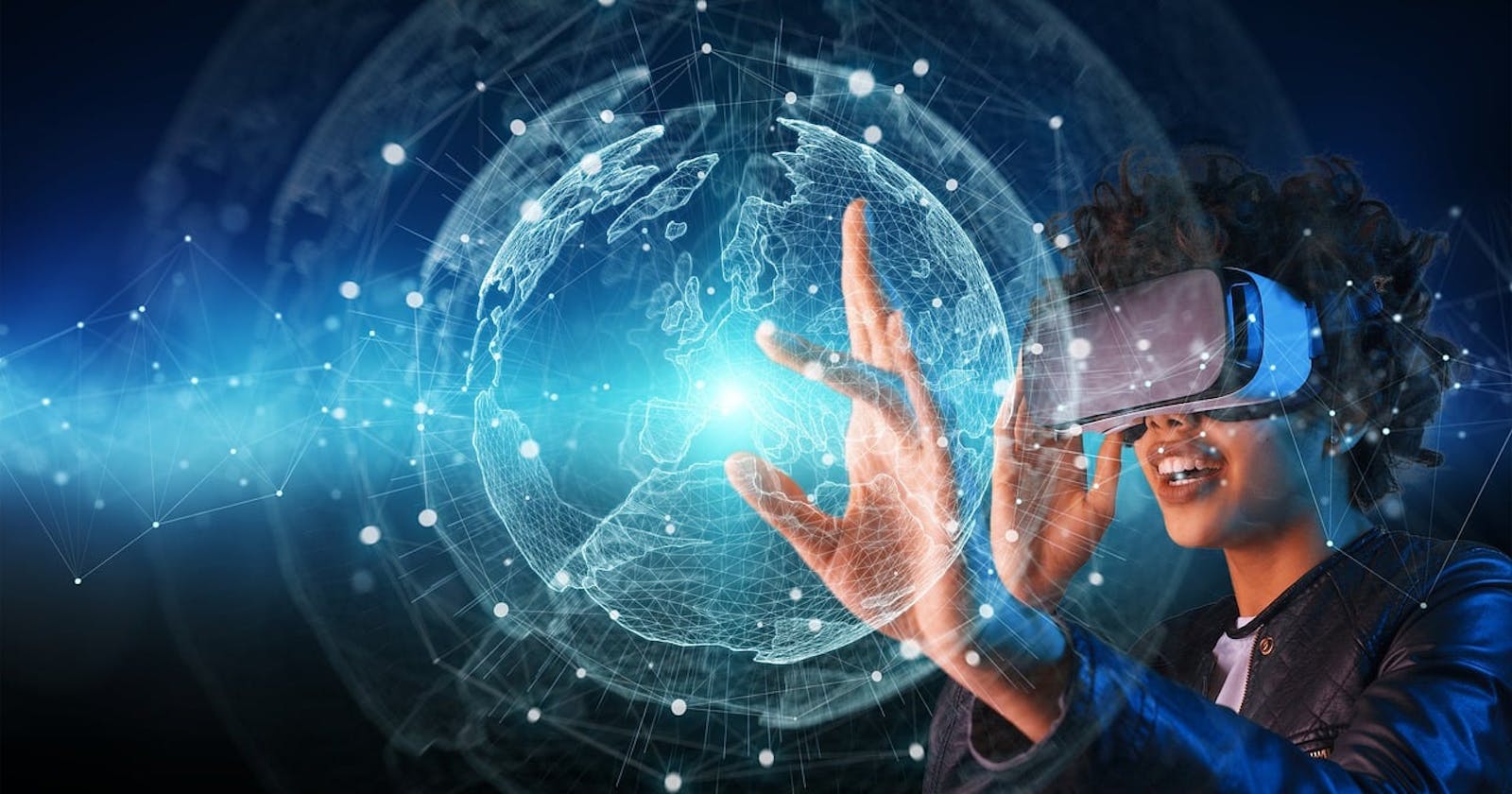Table of contents
- Understanding Virtual Reality (VR) and Augmented Reality (AR)
- The concept of the Metaverse
- The Potential of the Metaverse in Shaping the Future of VR
- Examples of current Metaverse platforms and experiences
- Challenges and Considerations in Building the Metaverse
- The Role of Technology in Creating the Metaverse
- Industries and applications that could benefit from the Metaverse
- Implications of the Metaverse on Society and daily life
- Exploring the future possibilities of the Metaverse
- Conclusion:
The rapid advancements in technology have opened up new frontiers in the world of virtual reality (VR) and augmented reality (AR). These immersive technologies have transformed the way we experience digital content, blurring the lines between the physical and digital realms. One of the most exciting concepts emerging from this realm is the Metaverse, a term coined by Neal Stephenson in his novel “Snow Crash” to describe a collective virtual shared space.
In this article, we will delve into the fascinating world of the Metaverse, exploring its potential in shaping the future of VR and its implications on society and daily life.

Understanding Virtual Reality (VR) and Augmented Reality (AR)
Before we dive into the concept of the Metaverse, it is essential to have a clear understanding of virtual reality (VR) and augmented reality (AR). VR refers to a computer-generated simulation that immerses users in a three-dimensional environment, typically experienced through a headset. This technology allows users to interact with and explore virtual worlds, providing a sense of presence and immersion.
On the other hand, AR overlays digital content in the real world, enhancing the user’s perception and interaction with the physical environment. AR can be experienced through smartphones, tablets, or specialized glasses, enabling users to see and interact with digital objects in the real world.
The concept of the Metaverse
The Metaverse is an extension of the virtual reality experience, taking it to a whole new level. It can be described as a collective virtual shared space that encompasses all virtual worlds, augmented reality experiences, and the internet. In the Metaverse, users can interact with each other, explore virtual environments, and engage in a wide range of activities, much like in the physical world.
The concept of the Metaverse goes beyond individual VR or AR experiences. It envisions a seamless and interconnected digital world where users can move between different virtual environments without any barriers. Imagine attending a virtual concert with friends from different parts of the world, exploring a virtual museum, or even working collaboratively in a virtual office space. The possibilities are endless in this immersive and interconnected digital realm.
The Potential of the Metaverse in Shaping the Future of VR
The Metaverse holds immense potential in shaping the future of virtual reality. It has the power to revolutionize the way we interact with digital content, opening up new avenues for entertainment, education, communication, and even work. With the Metaverse, we can create immersive and social experiences that were previously unimaginable.

For instance, in the field of entertainment, the Metaverse can transform the way we consume media. Imagine watching a movie or playing a video game where you are not just a passive observer but an active participant in the virtual world. With the Metaverse, we can create interactive narratives that respond to the user’s actions, allowing for personalized and dynamic storytelling experiences.
Examples of current Metaverse platforms and experiences
While the concept of the Metaverse may seem like a distant future, there are already several platforms and experiences that showcase its potential. One notable example is Fortnite, a popular online game that has evolved into a virtual social space. In addition to the traditional gameplay, Fortnite hosts live events, concerts, and even movie screenings within its virtual world, creating a sense of community and shared experiences.
Another example is Decentraland, a blockchain-based virtual reality platform where users can buy, sell, and trade virtual land and assets. Decentraland allows users to create and monetize their virtual experiences, fostering a vibrant and decentralized digital economy.
These examples highlight the social and interactive nature of the Metaverse, where users can come together, create, and share experiences in a virtual space.
Challenges and Considerations in Building the Metaverse
While the concept of the Metaverse is exciting, several challenges and considerations need to be addressed in its development. One of the primary concerns is the interoperability and standardization of virtual worlds. Currently, different virtual reality platforms operate in silos, making it difficult for users to seamlessly move between different experiences. To fully realize the potential of the Metaverse, there needs to be a unified framework that allows for seamless integration and interaction between different virtual worlds.
Another challenge is the scalability and performance of the Metaverse. As more users join the virtual space and engage in activities, the demand for the underlying technology infrastructure increases. Ensuring a smooth and lag-free experience for millions of users simultaneously is a significant technical challenge that needs to be overcome.
Privacy and security are also critical considerations in the development of the Metaverse. As users spend more time in virtual environments, their data and privacy become vulnerable. Striking a balance between personalized experiences and data protection is crucial to ensure the trust and safety of users in the Metaverse.
The Role of Technology in Creating the Metaverse
Building the Metaverse requires the convergence of various technologies, including virtual reality, augmented reality, artificial intelligence, blockchain, and cloud computing. These technologies work together to create immersive and interactive virtual experiences, enabling users to explore and interact with the Metaverse seamlessly.
Artificial intelligence plays a crucial role in the Metaverse, as it enables intelligent virtual characters and objects to interact with users in a natural and lifelike manner. AI algorithms can analyze user behaviour and preferences to generate personalized and dynamic content, enhancing the overall immersive experience.
Blockchain technology also has a significant role to play in the Metaverse. It enables users to own and trade virtual assets securely, ensuring transparency and trust in the digital economy of the Metaverse. Blockchain can also facilitate decentralized governance and decision-making within the virtual space, giving users more control over their virtual experiences.
Industries and applications that could benefit from the Metaverse
The Metaverse has the potential to disrupt and transform various industries, opening up new opportunities for innovation and growth. One industry that could benefit greatly from the Metaverse is the entertainment industry. Virtual concerts, live events, and interactive storytelling experiences can create new revenue streams and engage audiences in unprecedented ways.
The education sector is another area that could be revolutionized by the Metaverse. Virtual classrooms and immersive learning experiences can make education more accessible and engaging for students worldwide. Imagine exploring historical sites, conducting science experiments, or collaborating with classmates in a virtual environment.
The Metaverse also holds promise for the business world. Virtual office spaces and remote collaboration tools can enable teams to work together seamlessly, regardless of geographical boundaries. Virtual conferences and trade shows can bring people together from around the world, fostering networking and business opportunities.
Implications of the Metaverse on Society and daily life

The emergence of the Metaverse will have profound implications on society and daily life. It will redefine the way we socialize, work, learn, and entertain ourselves. The boundary between the physical and digital worlds will become increasingly blurred, as we spend more time in virtual environments.
The Metaverse has the potential to bridge the gap between individuals separated by distance, enabling them to connect and interact in meaningful ways. It can create a sense of community and shared experiences, fostering social connections in a world where physical proximity is no longer a limitation.
However, the Metaverse also raises important ethical and societal questions. As we spend more time in virtual environments, there is a risk of detachment from the physical world and real-life experiences. Balancing our digital lives with our physical lives will be crucial to maintain a healthy and fulfilling existence.
Exploring the future possibilities of the Metaverse
The future possibilities of the Metaverse are vast and exciting. As technology continues to advance, we can expect more immersive and realistic virtual experiences. From virtual tourism to virtual healthcare, the Metaverse has the potential to transform various aspects of our lives.
Imagine attending a virtual yoga class with an AI-powered instructor, exploring virtual replicas of famous landmarks, or even teleporting to different virtual worlds with a click of a button. The boundaries of what is possible in the Metaverse are limited only by our imagination.
Conclusion:
In conclusion, the Metaverse represents a glimpse into the future of virtual reality. It is a collective virtual shared space that has the potential to revolutionize the way we interact with digital content and each other. As technology continues to evolve, we can expect the boundaries between the physical and digital worlds to become increasingly blurred.

While there are challenges and considerations in building the Metaverse, the opportunities and possibilities it presents are immense. From entertainment to education, from business to social connections, the Metaverse has the power to transform various industries and aspects of our lives.
As we embrace the digital world of the Metaverse, it is essential to strike a balance between our virtual and physical lives. The Metaverse should enhance and enrich our real-life experiences, rather than replace them completely. By embracing this new frontier, we can unlock the full potential of virtual reality and shape a future where the boundaries of what is possible are limitless.
I have made this article from my own experience and by learning from many documents and articles, if there is any mistake comment below and if you have ideas to improve this article, reach out to me. If you found my blog interesting and want to hire me, email me at fa1319673@gmail.com
